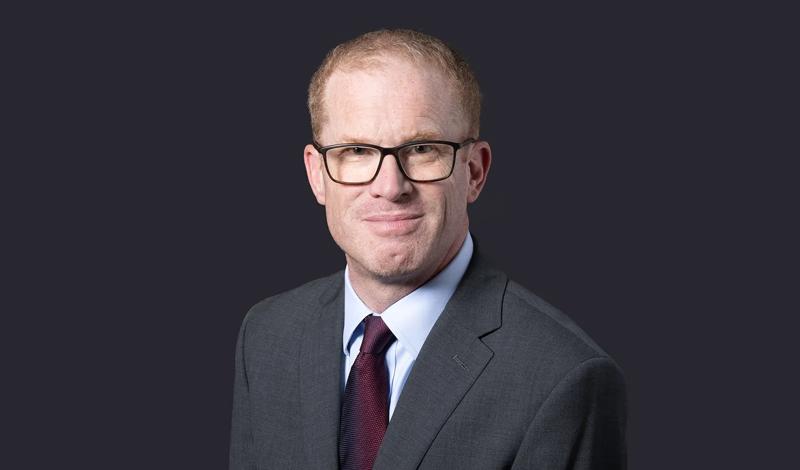Beyond system design – addressing the operational leadership challenges
We set out to explore two key related issues: the leadership challenge and how should the sector respond; and what the sector should be doing so that it can be trusted to hold itself to account within a self-improving school-led system.
April 2019
We recently hosted the latest in Browne Jacobson’s successful series of education sector roundtable events.
The focus of many of our previous roundtables has been at a policy level on system level structures. Whilst these issues continue to be important we wanted to change tack and look more ‘operationally’ at the challenges facing the sector. In particular, we set out to explore with attendees two key related issues:
- what is the leadership challenge facing the sector and how should the sector respond to it?
- what the sector should be doing to build trust so that it can be trusted to hold itself to account within a self-improving school-led system.
Attendees
We were delighted to be joined by the following sector stakeholders:
- Paul Barber, Director, Catholic Education Service
- Andy Buck, Founding Director, Leadership Matters
- Leora Crudas, CEO, Confederation of School Trusts
- John Fowler, Policy Manager, Local Government Information Unit
- Emma Knights, CEO, National Governance Association
- Rt Hon. David Laws, Executive Chair, The Education Policy Institute
- Julie McCulloch, Director of Policy, Association of School and College Leaders
- Reuben Moore, Executive Director for Programme Development, Teach First
- Stephen Morales, CEO, Institute of School Business Leadership
- Professor Dame Alison Peacock, CEO, Chartered College of Teaching
- James Toop, then CEO, Ambition School Leadership, now known as Ambition Institute
- Andrew Warren, then Chair, Teaching Schools Council.
Browne Jacobson would like to thank everyone who attended and contributed to a thoroughly interesting and thought-provoking discussion.
Key Themes
In this short paper we highlight through seven important questions some key themes that emerged from the discussions. Many of these themes interlink with and develop others.
1. The Evidence Question
Do we have sufficient, and sufficiently well-equipped, leaders to oversee our schools and trusts?
From the group’s discussion, the answer to this question appears to be that we simply do not know. While the system is still in significant flux, it’s difficult to identify how many leaders we will need in the future, and at what level. The skills and attributes required to lead trusts are also likely to evolve as these organisations become more settled. One attendee identified a risk that judgements on leadership in such a fastmoving system may be based on ‘hunch’ and ‘feelings’ and may not be rooted in an evidence base.
The consensus of the discussion was that there is a need to develop a more robust evidence base that can both articulate the leadership challenge for the sector as well as provide useful insight into successful leadership approaches. It would be helpful if this research, amongst other things, provided insight into:
- the impact of models of executive leadership in the school system;
- characteristics of successful leaders;
- impact of school to school support (eg NLEs & SLEs); and
- transferrable effective systems, structures and leadership approaches from other mature successful organisations – public, third and private sector, national and international – that can assist in addressing the leadership challenge.
In answering this question effectively, it will be necessary to reflect not only on the current leadership challenges but also to look ahead and reflect on those that will evolve going forward.
2. The Policy Question
Is the current devolved and autonomous school system in England likely to deliver the supply of school leaders we need? Supply in this context would be in terms of quantity, characteristics needed for our schools and the deployment of leaders around the country where we need them?
It was felt that there is a real risk of relying on the solution to come from the ‘randomness’ of a highly autonomous system. The reality is that a successful approach is likely to require a more co-ordinated approach involving actors from different levels in the system. The consensus from the discussion was that, for a variety of reasons, it is very unlikely that government will step in to provide a national solution. This therefore means, argued one attendee “that a solution will need to come from above the school level but below government”.
Undoubtedly, the Chartered College has a key role to play but it is likely that there will need to be even greater coordination and collaboration from key actors and organisations in the system. The think piece published by The Confederation of School Trusts and The Teaching School Council in 2018 was highlighted as setting out a compelling vision for creating a more coordinated and coherent approach to system governance and was identified as providing a helpful starting point to develop this thinking further.
3. The ‘What’ Questions
What do we need our leaders to lead? What is specific to education?
One attendee identified that there appears to be a current trend to look beyond generic leadership attributes and focusing on and valuing specific ‘leadership domains’.
The school system has undergone substantial structural change over the last eight years with, in particular, the development of groups of schools cited as a major change. For example, whilst 40% of academy trusts are MATs, MATs maintain 80% of academies. This is having an impact not only the nature of the leadership challenge but the distribution of leaders in the system. As Trusts grow they become more complex organisations and there is no doubt that the school system is a complex adaptive system.
Perhaps it is helpful to reflect on and articulate the different type of leadership roles in the sector. For example, the discussion identified that we need people and systems to:
- lead a school;
- lead teaching;
- lead development of teachers;
- lead subject knowledge;
- lead on the management and finances of the organisation.
When there is greater clarity on the various leadership domains that are required it should be possible to start to consider the approach to career pathways, the training and development of leaders as well as the pipeline and deployment of leaders in schools and trusts.
At a system level it should also be possible to have a better understanding of the numbers of leaders needed in the various domains.
It was also argued that delivering the above may also make it easier to attract talent from outside the sector to leadership roles.
4. The Trust Question
How can leaders build trust?
During the discussion there was recognition that for leaders to be effective they need to build trust. Breaking that down further the work of Stephen Covey was introduced. Covey proposed that “Trust is confidence born of two dimensions: character and competence.”
The continuing work on ethical leadership in the sector is clearly very important and the recently published Framework on Ethical Leadership in Education was commended.
The value of the role of coach and mentor from an early stage in people’s careers was also highlighted. The attractiveness of this concept is that it is something that schools and trusts could implement right now by collaborating with others in the sector.
5. The Attraction Question
How do we make leadership roles attractive?
The phrase ‘high stakes accountability’ is potentially overused in general public debate as a reason for many of the sector’s challenges but it should not be dismissed lightly. This is particularly relevant when you consider that the development of higher accountability on governance and financial management as the academy programme has expanded has certainly raised the bar and the stakes for the academy sector.
The discussion identified that there is a growing concern amongst many in the sector that a compliance mind-set is becoming dominant and acting as brake on the successful development of the sector. The challenge was summed up by one attendee who argued that in our education system, “the problem is we are tight on everything”. It was acknowledged that compliance with agreed rules is clearly a fundamental concept that must underpin any successful education system. However, one of the challenges that can arise where there is a dominant ‘compliance mindset’ is that you can find that you end up policing the minimum rather than encouraging continuous improvement and higher standards.
The discussion then developed the theme further to reflect on (in general terms) individual leaders in the system. It was argued that it is important that the job of a leader or teacher should not be seen as simply being compliant with any number of things (eg national curriculum, teacher standards, the academies financial handbook). An important distinction was therefore drawn between professional competence and competency/competency framework. Competency frameworks can breed compliance and it was argued that they belong in occupations. Achieving professional competence cannot simply be about ticking off a checklist because it is underpinned by professional knowledge.
At the individual level, it would be helpful to outline a common understanding of the professional competence required at the different levels of leadership.
At both the system and organisational level, it would also be sensible to move to an approach where there is real clarity about the most important things where you will adopt a tight approach and others where there can be more flexibility. A system where you are tight on everything strains against the fundamental principles of an autonomous and school led system.
6. The Pipeline Question
Where are the leadership programmes that will deliver the required supply of leaders and who will fund/pay for them?
There was a general consensus that whilst leadership programmes were available (and many CEOs have had the opportunity to attend one of the programmes) they simply are not funded at a level that could allow the programme to deliver the required breadth and depth of training and development. Even the highest funded programmes for the sector allow 8 or 9 days which is not enough (just look at time provided in MBAs) to effectively prepare for the challenges of running a group of schools. Increasing number of MATs have turnovers in excess of £100m and handful exceed £200m.
Two clear themes emerged:
- the sector needs to make and win the argument for the need for more comprehensive leadership programmes. Once this has been achieve it will be necessary to address the thorny issue of how they can be funded;
- recognising the likely size of the market (it is currently already crowded market) there is an argument that it is not big enough for a competitive market and therefore it will require innovation and collaboration by the existing players to create the ‘new pinnacle’ for leadership programmes in the sector.
7. The Architect Question
Do we have the right organisational design?
When looking at the leadership challenge it is important not to overlook organisational design. The reality is that because of the very nature of the development of the academy programme there has been little opportunity for growing trusts to implement significant and systematic organisational design in their own development. In saying this it is important to recognise that with the pace and rate of growth it is in fact “pretty incredible” what the first generation of MAT CEOs have achieved. Yes, there have been failures but it is important to not overlook the positive stories.
It is clear that increasingly trusts over the last few years have started to look at this issue in more detail. Going forward it will be important to ensure that getting the organisational structure right feeds into the solutions to the preceding questions.
Conclusion
It is clear that some academy trusts are now moving into a different phase of development – moving from a period starting in 2010 that felt to many like a ‘new world’ with single academy trusts, and an opportunity to grow to more recently a ‘settlor’ phase.
It is also important to recognise that the school system in which MATs operate is a complex and adaptive system which adds to the complexity of solving the leadership challenge.
Reflecting back to question 2, the policy question, there is clearly an opportunity for the school led system to take the initiative and look to articulate the key questions that need to be addressed and then to provide answers to those questions. Recognising that this is very much in the policy space it will be important to engage with the Department for Education but it is likely in current climate that the department would be delighted if the sector came forward with viable solutions.
For more information, please contact:
Mark Blois
Partner and Head of Education
+44 (0)115 976 6087
Email Mark
View profile >
Nick MacKenzie
Partner
+44 (0)121 237 4564
Email Nick
View profile >

Nick MacKenzie
Partner
nick.mackenzie@brownejacobson.com
+44 (0)121 237 4564







































